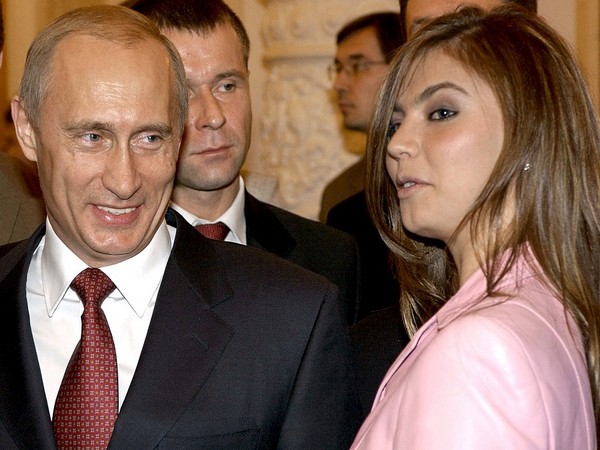
Washington: Russian President Vladimir Putin's alleged girlfriend, Alina Kabaeva, is included in the sixth proposed package of European Union sanctions against Russia over its invasion of Ukraine.
According to two European diplomatic sources, Kabaeva, who has been romantically linked to Putin was included in proposed EU sanctions list, reported CNN. At this stage, names can be taken off or added at member states' discretion and is expected to be a point of negotiation when any new sanctions package is proposed, an EU Commission source told CNN.
The EU has not officially signed off on the draft proposal.
"Discussions are going on. It's not a piece of cake, but we have to wait and see," one of the diplomatic sources told CNN on Friday morning.
Kabaeva, who was born in 1983, was first linked to Putin more than a decade ago, while she was a medal-winning gymnast. Putin, who is divorced, has denied a relationship with her.
Kabaeva and Putin reportedly met when she was a young gymnast who won multiple medals domestically at European competitions and at the Olympic Games.
She was awarded the gold medal for rhythmic gymnastics at the Athens Games in 2004.
Widely known in her home country, she was chosen as one of the torch bearers when Russia hosted the Winter Olympics in Sochi, Russia in 2014, an event that took place shortly before Russia illegally annexed Ukraine's Crimean Peninsula, reported CNN.
In April, the Wall Street Journal reported that US officials had been debating whether or not to place sanctions on Kabaeva, with concerns that such a move might increase tensions further because it could be an extreme personal blow to Putin.
The head of the Russian Orthodox Church, Patriarch Kirill, is also among the individuals who are included in the proposed sixth round of EU sanctions, according to two sources who have seen the full documents, reported CNN.
The proposed sanctions are out of touch with "common sense," Russian Orthodox Church spokesperson Vladimir Legoida said Wednesday, according to Russian state news agency TASS.
"The more indiscriminate (these) sanctions become, the more they lose touch with common sense and the harder it becomes to reach peace, which is what the Russian Orthodox Church prays for at every service with the blessing of His Holiness the Patriarch," Legoida said in a Telegram post.
"Only those completely ignorant of the history of our Church can seek to intimidate its clergy and believers by compiling some lists," Legoida said.
The EU has been ratcheting up its economic action against Russia since the start of the war in Ukraine. Most recently, the bloc has proposed a ban on Russian oil imports, something that would have a major impact on Russia's economy, though Hungary, an EU member state with close links to Putin, is likely to scupper any such plans.